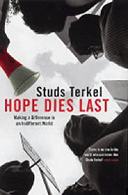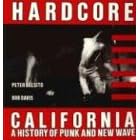here are my notes on chapter one,a vocabulary for feminist praxis: on war and radical critique by
angela davis. i am paraphrasing some of her language here without decoding, please let me know if there are terms that you don't know the definitions of and i can try and help with that, chapter one notes:
how can feminism help us meet the challenge we face in translating widespread dissent against the wars in the middle east into 'a sustained movement that can effectively counter the imperial belligerence of the USA'?
-the school of feminism she belongs to is interested in questioning the 'tools we use' to critique and transform. this tradition comes from social movements against racism, imperialism and supports labor struggles, etc
"it is now important to imagine a world without xenophobia and the fenced borders designed to make us think of people in and from a southern region outside the USA as the enemy. it is now important to imagine a world in which binary conceptions of gender no longer govern modes of segregation and association, and one in which violence is eradicated from state practices as well as from our intimate lives--from heterosexual and same sex relationships" she adds that we must also imagine 'a world without war'.
next claim: idealism is necessary, but not enough.
in her version of feminism:
"Feminist critical habits involve collective intervention as well. The feminist critical impulse, if we take it seriously, involves a dual commitment to use knowledge in a transformative way, and to use knowledge to remake the world so that it is better for its inhabitants--not only for human beings, for all its living inhabitants. This commitment entails an obstinate refusal to attribute a permanency to that which exists in the present, simply because it exists. This commitment simultaneously drives us to examine the conceptual and organizing tools we use, not to take them for granted" (20)
Claim: this version is more radical than the imperialist Laura Bush version.
This more radical feminism is a feminism
-that does not capitulate to possessive individualism
-that does not assume that democracy requires capitalism
-that is bold and willing to take risks
-that fights for women's rights while simultaneously recognizing the pitfalls of the formal 'rights' structure of capitalist democracy
this means we are not fighting for the equal rights for women to fight and die in war or to torture, but that we can advocate for the equal right of men and women to refuse to participate in the military. we can fight to dismantle the military machine as part of our feminism.
next she asks:
what is the relationship between individual and collective accomplishments? she claims it is a mistake to view the career success of someone like C. Rice as a collective success for feminism
at the top of page 22 she talks about emphasizing "feminist methodologies" rather than abstractions. she is talking about 'woman' as an abstraction, referring to the racist, classist feminism of the 20th century that isolated gender from race, class, nation, sexuality--as if that is even possible. she is suggesting that we need to emphasize the practical application as grounded in the material, historicized realities of women's lives as they are lived. no one is female without having a race or class identity, so why theorize as if that is the case? it results in universalizing a privileged experience, as those who are racially privileged do not have to examine 'whiteness' in order to survive, those who are materially privileged to not have to examine'richness' in order to pay rent, etc.
she then encourages us to "inhabit contradictions" and discover "what is productive about those contradictions". i wish she would give an example here of what this would look like. any ideas?
her next assertion is the most compelling to me. in comparing the Vietnam War era to our current era, she uses the My Lai massacre and Haditha as examples, she claims that it is not enough to assume that things would change if we could simply get the truth out to enough people. she recognizes that with embedded journalists, it is true that we are not seeing pictures of the atrocities to the same degree that people were during vietnam, but using the photos of abu ghraib as an example, she argues that it is a mistake to assume our project is to simply get the right information out there to the american public. she ties this mistaken assumption to a critique of the enlightenment. tracing this problem back to philosopher Immanuel Kant, she writes "the problem to which I am referring emanates from the assumption that rational communication and publicity are sufficient".
so, if we agree that it's not enough to get the truth out to the public, because the truth will not have the necessary impact on u.s. foreign policy, then what is to be done?
hmmm. she talks about the reaction people had to images of torture at Abu Ghraib asking 'how could this happen' thinking this is an aberration, rather than being consistent with U.S. foreign and domestic policy. we are asking the wrong questions then?
she then goes back to claim that as feminists, we must be vigilant in our critique of "conceptual tools". i take this to mean she is asking us to engage in a sustained critique of
enlightenment thinking (as her earlier mention of 'equal rights' also seems to evoke)....but if people don't know the history of political philosophy or western intellectual history, they don't know what this means exactly--quickly, this is the point in history when Reason replaced God. she is saying that the intellectual tradition that stems from the enlightenment is giving us the wrong conceptual tools, that we can't count on people to be rational and do the right thing once they know 'the truth' about the war in Iraq. Her example of Abu Ghraib then is useful: once people know what happened, they still don't see the big picture. how do we get them to see the big picture? Is that even the goal in her view?
She claims we must make connections between what happened at Abu Ghraib and what happens in US prisons domestically. I would guess the history of US use of torture in Latin America should be examined. we should see this as an example of the continuation of the policy in service of the project of empire. we can't assume the general public to know this history. but if they did, would anything change? according to her critique of Kant, no. so then, what is the point?
her solution seems to be that we need to be vigilant and "engage in constant criticism". but what is the goal of criticism and intellectual vigilance if
the truth and rationalism have no connection to how we act? is that what she is claiming? or is she saying that assuming that being rational=being ant-war is a false assumption? i really am not sure.
i think she is discussing ideology and the role of consciousness in social change without using that language overtly, but i am not sure what her claim is here exactly.
she also asks feminists to constantly critique "democracy", "diversity", individualism and to recognize the role of US ideology in promoting an imperialist agenda that is at odds with radical feminism.
an example of what she means is given when she suggests that violence against women needs to go beyond a discussion of violence between individuals and include state violence, torture, prison violence and capital punishment
she concludes by discussing the case of
Assata Shakur, a political prisoner who fled to Cuba and wishes to return to the US and asks feminists to "get involved" and to utilize a feminism that engages in a critique of conceptual tools we use to 'enact transformation'.













